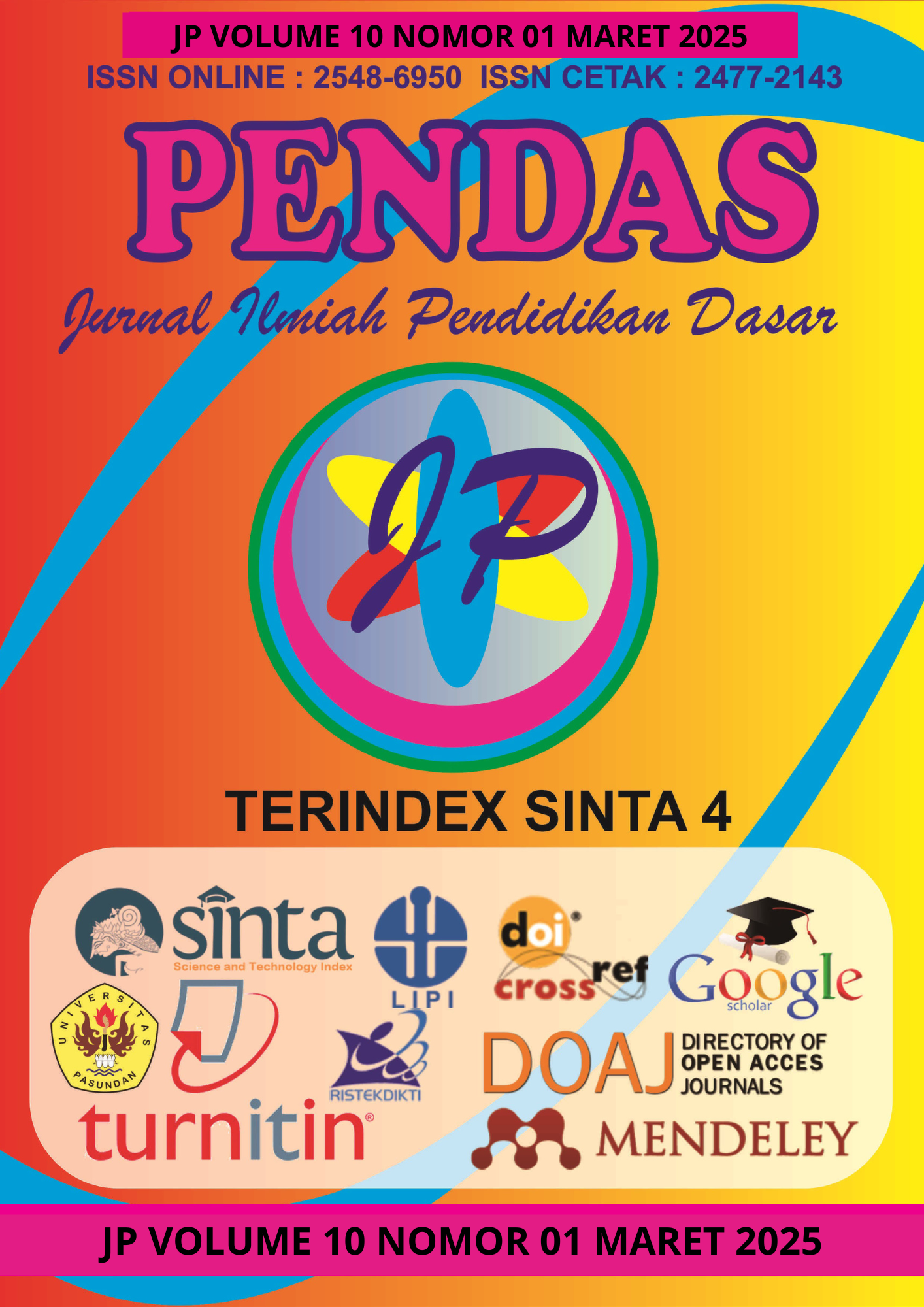PERAN KEPALA SEKOLAH DALAM MENINGKATKAN MOTIVASI DAN KEPUASAN KERJA GURU DI SD NEGERI PAGUMENGANMAS
DOI:
https://doi.org/10.23969/jp.v10i01.21651Keywords:
teacher’s job satisfaction, teacher’s motivation, prinsipal’s roleAbstract
The purpose of the research is to analyze the principal’s role in increasing teacher’s motivasion and job satisfaction at Pagumenganmas State Elementary School. The background this research is low job satisfaction which is characterized by a lack of appreciation for teachers, low teacher achievement motivation and a lack of communication between principal and teacher which often causes misunderstandings in interpreting task orders. This indication reflects the teacher's lack of concern for what is mentioned, often complaining and always considering every job given to be complicated, no desire to be motivated and achieve, lack of responsibility, lack of work enthusiasm and motivation. This research uses a qualitative approach with descriptive methods, involving interviews, observation, and documentation as data collection techniques. The research results show that the principal acts as an effective leader in creating a conducive learning environment, managing administration, and building good relationships with teachers. Principals who can carry out their functions as educators, managers, administrators, supervisors and motivators can significantly increase teacher job satisfaction. In addition, the principal's support in rewards and professional development contributes to increased teacher motivation and performance. This research confirms that good principal leadership is very important in building a productive and harmonious school climate, which in turn has a positive impact on the quality of education at Pagumenganmas State Elementary School.
Downloads
References
Afandi, P. (2018). Manajemen Sumber Daya Manusia. Jakarta: Zanafa Publishing.
Chen, G., & Van Vugt, M. (2016). Job satisfaction and its determinants: A meta-analysis. International Journal of Human Resource Management, 27(3), 293-321.
Kreitner, R., & Kinicki, A. (2014). Perilaku Organisasi (edisi ke-10). New York: McGraw-Hill Education.
Noe, R. A., Hollenbeck, J. R., Gerhart, B., & Wright, P. M. (2006). Fundamentals of human resource management. New York: McGraw-Hill.
Ratna Sari, H. F., Ekawarna, E., & Sulistiyo, U. (2022). Pengaruh Stres Kerja, Motivasi Kerja dan Kepuasan Kerja Terhadap Kinerja Guru. Edukatif: Jurnal Ilmu Pendidikan, 4(1), 1204-1211.
Robbins, SP, & Judge, TA (2017). Perilaku Organisasi (edisi ke-17). Pearson Education. Jakarta : Salemba Empat, 2017.
Sarwono. (2000). Teori - teori Psikologi Sosial. Jakarta : Raja Grafindo Persada.
Suchyadi, Y., Karmila, N., & Safitri, N. (2019). Kepuasan Kerja Guru Ditinjau Dari Peran Supervisi Kepala Sekolah Dasar Negeri Di Kecamatan Bogor Utara. Jurnal Pendidikan dan Pengajaran Guru Sekolah Dasar (JPPGuseda), 2(2), 91-94.
Syafitri, A., Sesmiarni, Z., & Devi, I. (2023). Peran Kepala Sekolah Dalam Meningkatkan Kepuasan Kerja Guru Di Smpn 2 Tigo Nagari Kabupaten Pasaman. Innovative: Journal Of Social Science Research, 3(2), 11401-11410.
Tiffin, J. (1958). Job satisfaction and its measurement in the workplace: A review of the literature and a new approach to measurement. Journal of Applied Psychology, 42(5), 305-311.
Werang, B. R., & Irianto, O. (2018). Pengaruh Iklim Sekolah Terhadap Motivasi dan Kepuasan Kerja Guru Sekolah Dasar di Distrik Mindiptana, Papua. Musamus Journal of Primary Education, 1(1), 013-023.
Wexley, K. N., & Yukl, G. A. (2005). Organizational behavior in the workplace: An overview of the literature on job satisfaction and performance management strategies. Journal of Organizational Behavior, 26(4), 371-387.
Downloads
Published
Issue
Section
License
Copyright (c) 2025 Pendas : Jurnal Ilmiah Pendidikan Dasar

This work is licensed under a Creative Commons Attribution 4.0 International License.














































